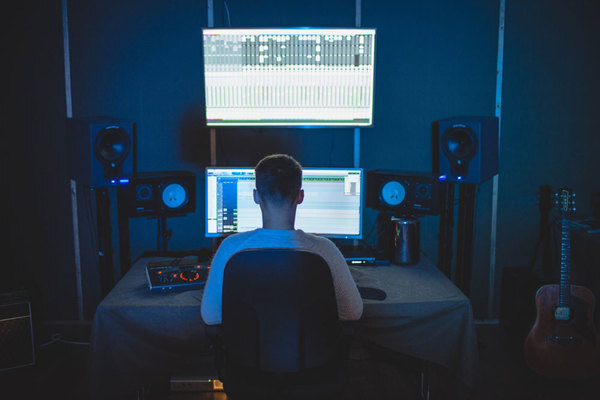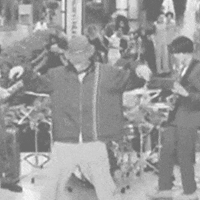
(Priscilla Du Preez/Unsplash)
I don’t pretend to know what it’s like to be a mainstream pop star in 2021. It seems like an intriguing life, where the right combination of looks, style, management, and luck can come together and make things happen for you.
But the truth is, there’s a middle class to mainstream music, and it can be more sustainable and less flash-in-the-pan than anything happening on the pop charts because it comes down less to luck and more to skill. A few years ago I wrote about it in the context of The New Radicals, whose Gregg Alexander decided to bow out of being the pop star himself in favor of the consistency and skill-based work of being a pop songwriter. (It was a good move for him, leading to further pop hits where he wasn’t the vocalist, years of steady work, and an Oscar nomination, and he was able to make a comeback on his own terms earlier this year, thanks to an affinity for “You Get What You Give” shared by the Biden family. No way that would have happened had he kept doing radio station morning shows.)
But the tension between the pop-star crapshoot and the more traditional labor structures of professional songwriting got a pretty awkward stick thrown into its whirring fan blades this week, when a number of major songwriters released something called The Pact, a call for major pop stars not to take unearned songwriting credit on songs they didn’t actually write.

(James Owen/Unsplash)
The campaign was, of course, built around an open letter, which goes like this:
Over the last few years, there has been a growing number of artists that are demanding publishing on songs they did not write. These artists will go on to collect revenue from touring, merchandise, brand partnerships, and many other revenue streams, while the songwriters have only their publishing revenue as a means of income. This demand for publishing is often able to happen because the artist and/or their representation abuse leverage, use bully tactics and threats, and prey upon writers who may choose to give up some of their assets rather than lose the opportunity completely. Over time, this practice of artists taking publishing has become normalized; and until now, there has been no real unity within the songwriting community to fight back.
Many of the successful songwriters in the music industry have dreams of becoming artists themselves, and it isn’t unheard of for artists to break out of gig songwriting to become stars in their own right (a legacy that stretches as far back as Carole King and as recently as Julia Michaels), but for now, many of these songwriters are depending on those publishing royalties to pay the bills.
(And when they can’t, they’re stuck driving Ubers even when appearing on hit records.)
I think about some of the things I’ve discussed over the years (and even recently) about being able to own your own publishing process. And I realize that a lot of other industries need this too, because there are always middlemen asking for someone brilliant to pay the toll. And to some degree, it’s important to remember you’ll have to pay—that toll gives you access and authority that would be difficult to claim on your own. But it has to be earned, a fair value exchange.
“Issues,” a breakout hit for professional songwriter Julia Michaels, was cowritten by Justin Tranter, her longtime songwriting partner and a signatory on The Pact.
To me, it seems like songwriters are rightly pushing back against those who are are standing in the middle of a paycheck without really doing the hard work to earn it. They, too, have dreams and aspirations. And when someone takes something that they didn’t deserve—at least not to the degree they claim in public—it makes their life a lot harder.
By the way, before I get off this point, do yourself a favor. Go to The Pact website. Google some of the names of the songwriters who pass by who have already signed this open letter. Check out what they’re doing when they’re not gigging in the songwriting booth. (I’ll save you some time and link a few: Ross Golan, Amy Allen, Tayla Parx, Billy Mann.)
And think about the way that you worked on some side project over the weekend and put the midnight oil in—and how much harder that would be if your boss cut your pay at your day job. By taking unearned songwriting credit when there are lots of other ways to make a buck in the music industry, these big-name artists are making it just a little harder for these songwriters to follow aspirations of their own.
And that sucks for everyone who likes those songs.
Time limit given ⏲: 30 minutes
Time left on clock ⏲: 4 minutes, 44 seconds



